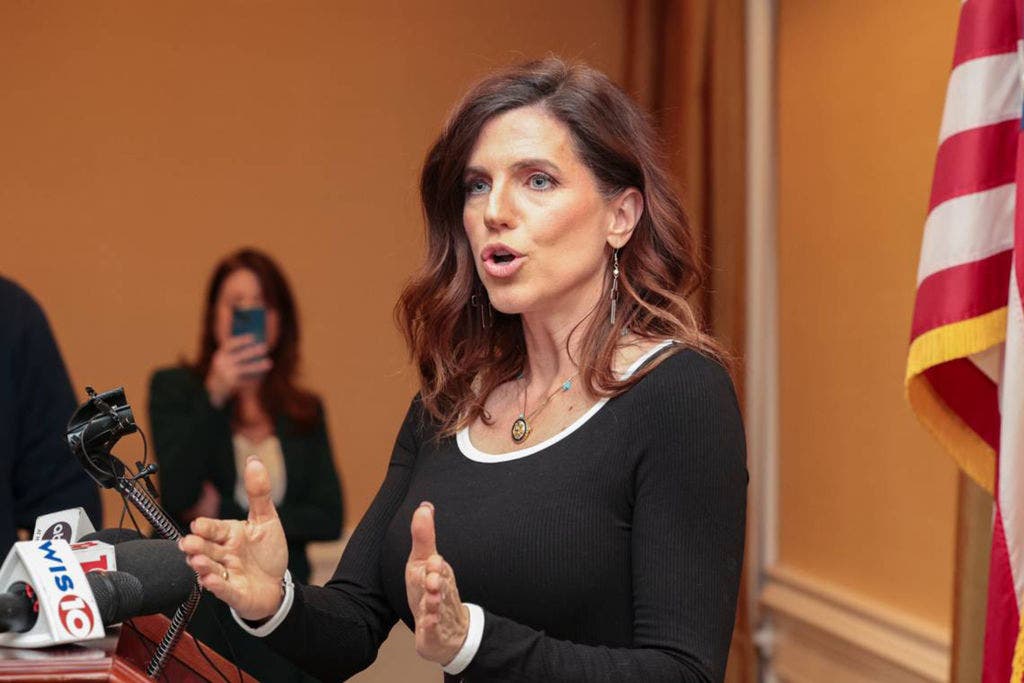In a recent encounter that captured attention on social media, Republican Congresswoman Nancy Mace was confronted by a voter who pressed her on when she would hold her next town hall meeting. The exchange escalated swiftly, culminating in heated exchanges and insults from both parties. Although Mace has been vocal about her commitment to holding town halls, the confrontation turned confrontational, showcasing the rising tension in political discourse at community level. The video of the incident sparked widespread reactions, reflecting the current state of political engagement in America.
| Article Subheadings |
|---|
| 1) Background of the Incident |
| 2) The Escalation of Tension |
| 3) Response from Mace and Public Reactions |
| 4) Political Context and Implications |
| 5) The Broader Impact on Political Discourse |
Background of the Incident
The confrontation involving Nancy Mace, representative for South Carolina, occurred in a public setting, highlighting the growing tension between elected officials and their constituents. Mace has drawn both support and opposition due to her political stance, particularly on social issues. The video, spanning nearly two minutes, features Mace responding to a voter’s question regarding her upcoming town hall meetings, a forum often used by politicians to connect with their constituents and address their concerns. Mace emphasized her commitment to holding such gatherings annually while suggesting that the voter was hostile and had been ‘harassing’ her.
The Escalation of Tension
The interaction quickly became confrontational when Mace mentioned her voting record on social issues, specifically her support for gay marriage. This remark apparently provoked the voter, who questioned Mace’s association of his inquiry with her legislative choices on social matters. Tensions escalated, with Mace asserting, “You’re always invited” to her town halls. As the exchange unfolded, Mace characterized the voter’s demeanor as ‘crazy,’ indicating a significant breakdown in civil dialogue. This rapid escalation raises questions about the tone of political discussions in informal settings.
Response from Mace and Public Reactions
Following the confrontation, Mace took to social media to share her perspective on the encounter, framing herself as a steadfast representative who is unafraid to confront her critics. In her post, she stated, “I hold the line 24 hours a day, 7 days a week, 365 days a year. Try me,” showcasing her commitment to her political ideology while dismissing her opponent’s viewpoint as irrational. This incident triggered reactions across various platforms, with supporters praising her assertiveness and detractors highlighting the need for more respectful dialogue between public officials and constituents. The divergence in opinions signals the polarized political atmosphere in the United States.
Political Context and Implications
Amidst growing tensions in American politics, Mace’s confrontation reflects broader trends affecting political interactions. As local and national political divides deepen, representatives are increasingly finding themselves in situations where their policies and personalities are scrutinized face-to-face. Mace’s handling of the confrontation may resonate with her supporters, reinforcing her image as a tough politician, while alienating those who prefer more civil discourse. This incident highlights the challenges modern politicians face in maintaining a connection with their constituents while navigating the polarization of political views.
The Broader Impact on Political Discourse
This incident underscores a critical concern regarding political discourse in the United States. As public engagement intensifies, incidents of confrontational interactions may discourage individuals from participating in town halls or other forms of civic engagement for fear of conflict. The lowering of the civility bar in politics could lead to further polarization, with citizens feeling unwelcome to voice their opinions. As representatives like Mace encounter hostility, it raises the question: how can elected officials foster environments for healthy dialogue while also asserting their perspectives? The incident with Mace serves as both a moment of reflection and a potential catalyst for discussing the nature of public political engagement.
| No. | Key Points |
|---|---|
| 1 | Congresswoman Nancy Mace faced a confrontational voter during a public encounter. |
| 2 | The interaction escalated quickly into a heated exchange, showcasing political tensions. |
| 3 | Mace’s remarks on her voting history provoked further confrontation with the voter. |
| 4 | Responses to the incident reveal strong public divisions regarding Mace’s political stance. |
| 5 | The incident highlights challenges in maintaining civil political discourse in increasingly polarized environments. |
Summary
The confrontation between Nancy Mace and a voter serves as a microcosm of the current state of political engagement in America. As elected officials navigate increasingly polarized environments, incidents like these not only reflect growing tensions but also pose questions regarding the nature of public discourse and engagement. Mace’s reaction and subsequent social media post indicate her position within a contentious political climate, potentially energizing her supporters while driving a wedge with critics. Ultimately, this event may catalyze further discussions on how lawmakers can foster healthy interactions with their constituents while advocating for their beliefs.
Frequently Asked Questions
Question: What prompted the confrontation between Nancy Mace and the voter?
The confrontation was prompted by the voter’s inquiry about when Mace would hold her next town hall meeting, which escalated when Mace discussed her voting record on social issues.
Question: What was Mace’s reaction to the exchange?
Mace characterized the encounter as confrontational, responding assertively to the voter and later sharing the incident on social media, reinforcing her political stance.
Question: How do incidents like this affect political discourse?
Incidents like this can galvanize supporters while alienating detractors, potentially discouraging constructive civic engagement and contributing to further polarization in political discourse.


